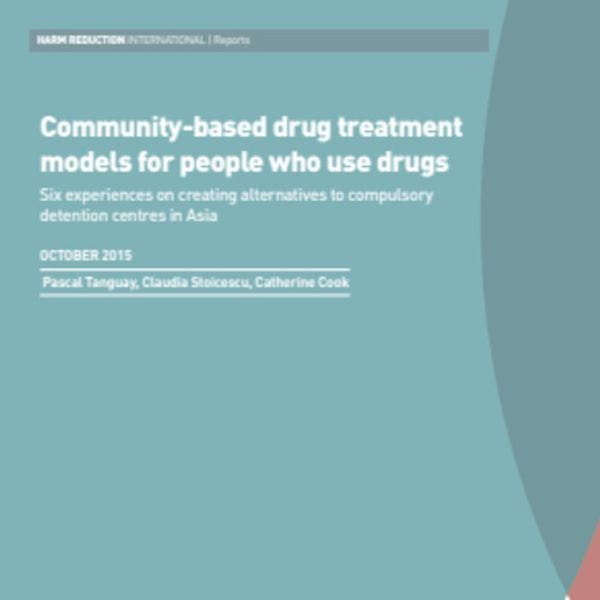Les modèles communautaires de traitement des usagers de drogues
Ce document rassemble des études d’alternatives aux centres de détention obligatoire utilisés dans divers pays asiatiques pour encourager une approche communautaire et axée sur les droits humains. Pour en savoir plus, en anglais, veuillez lire les informations ci-dessous.
Abonnez-vous à l'Alerte mensuelle de l'IDPC pour recevoir des informations relatives à la politique des drogues.
The detention of people who use drugs within compulsory centres for ‘treatment’ and ‘rehabilitation’ remains a predominant government response to drug use in many Asian countries. This is despite calls from the United Nations to close compulsory centres and provide drug treatment within community settings. Community-based programmes that are operating in the region have not been well documented. As governments are beginning to explore alternatives to compulsory detention, sharing the experiences and lessons learned from these programmes is critical.
Community-based drug treatment models for people who use drugs. Six experiences on creating alternatives to compulsory detention centres in Asia - presents a range of models of community-based drug treatment interventions and experiences from Cambodia, China, India, Indonesia, Malaysia and Vietnam. Based on these case studies, essential components and minimum requirements needed to define such services are identified. These elements can be used as guiding principles to support national transitions away from compulsory detention for people who use drugs, and inform the development of plans for service delivery and policy reform.
This report presents findings from HRI’s research within the Asia Action on Harm Reduction project, that is managed by the International HIV/AIDS Alliance and funded by the European Union.
Keep up-to-date with drug policy developments by subscribing to the IDPC Monthly Alert.
